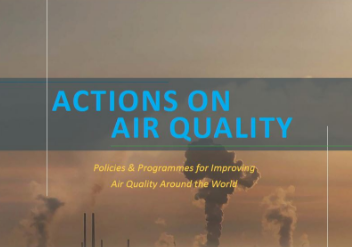Air Pollution range increased by 8% and affect the Air Quality, Report on Air Quality released by United Nations Environment Programme
Solutions to tackle GLOBAL PUBLIC HEALTH EMERGENCY:
- Priority on renewable source
- Clean Cooking fuels and Stoves
- Fuel sulphur content and public transport
Results of global air quality declines
Threatening to seven million people air pollution kills each year
World Health Organization (WHO) Statement:
- Urban air pollution levels increased by 8 per cent between 2008 and 2013
- About 80 per cent of people living in urban areas are exposed to air quality levels that exceed WHO limits
Initiatives by UNEP
- Renewables accounted for a majority of the new electricity-generating capacity added around the world at an investment of $286 billion
- Review of Air Pollution Control in Beijing: 1998-2013 analyzed measures implemented since Beijing began launching air pollution control programmes
- Launched several programmes, including an initiative to develop a low-cost sensor track and address pollution hotspots
Focus: Ten basic measures to improve air quality
Highlights of Actions on Air Quality:
- About three billion people are using solid fuels and inefficient cook stoves Eg: Seychelles
- 1/4th of countries have advanced fuels and vehicles standards, which can significantly reduce small particulate matter pollution Eg: Kenya, Uganda, Tanzania, Burundi and Rwanda
- Electric cars have been on the increase Eg: Norway
- Some countries and cities have been able to increase waste recycling, reducing the need to burn waste Eg: Brazil
- National air quality standards Eg: India
About UNEP:
♦ UNEP Executive Director – Achim Steiner
♦ Established in 1972
♦ Acts as a catalyst, advocate, educator and facilitator to promote the wise use and sustainable development of the global environment.
AffairsCloud Recommends Oliveboard Mock Test
AffairsCloud Ebook - Support Us to Grow
Govt Jobs by Category
Bank Jobs Notification




